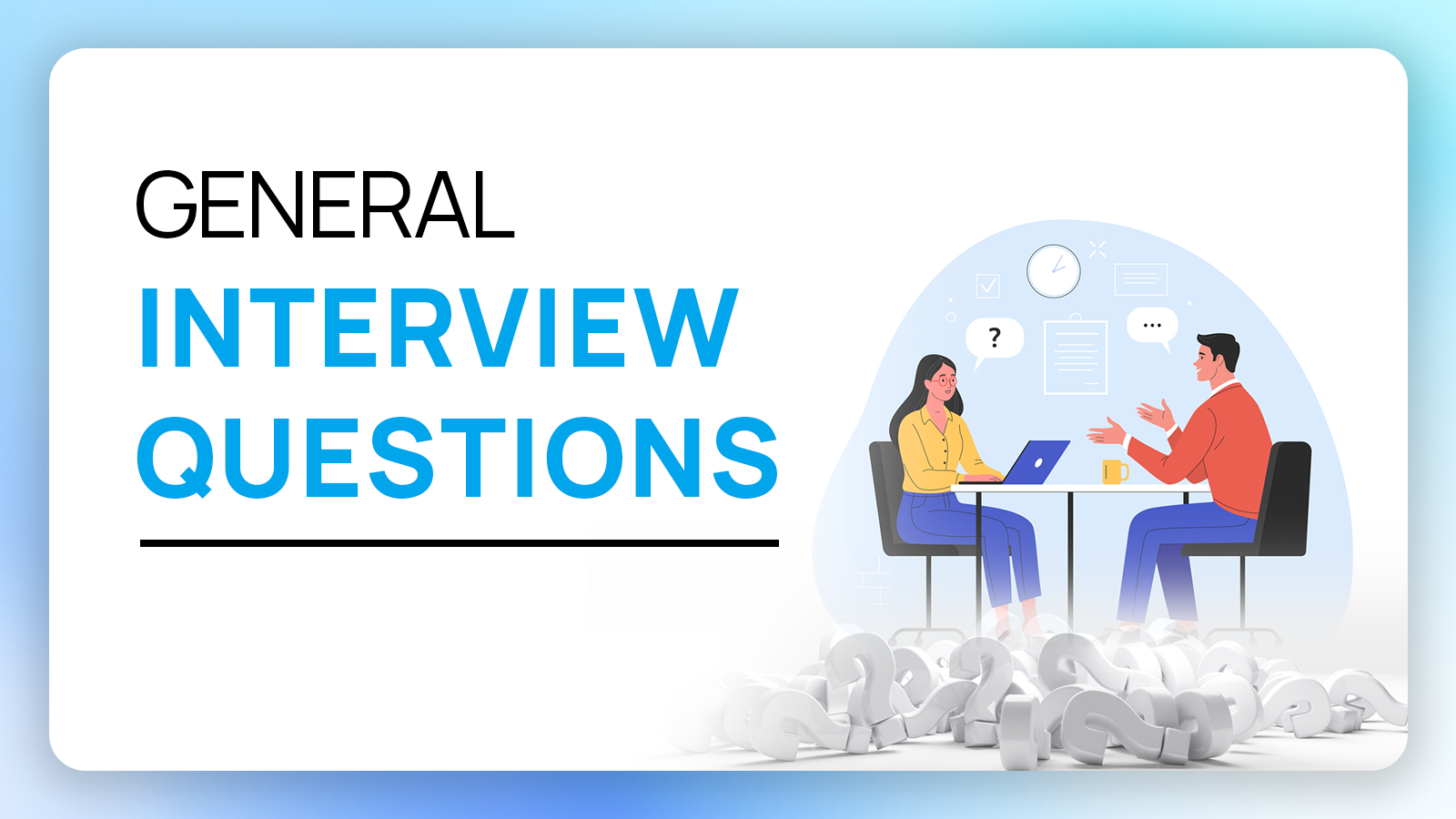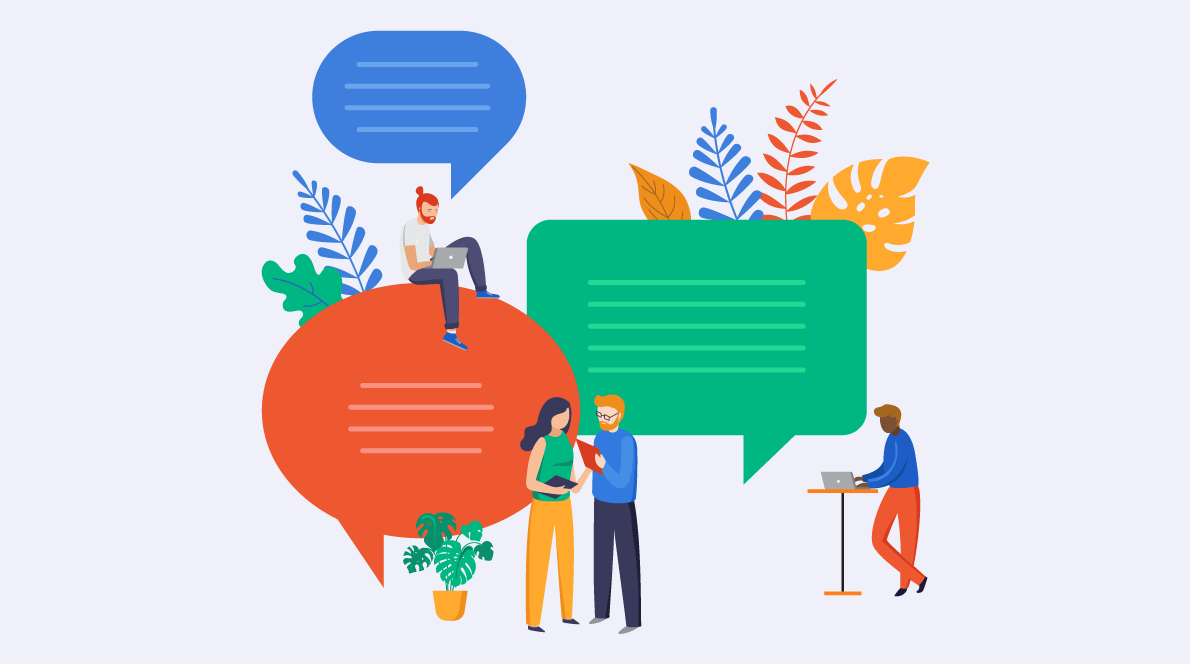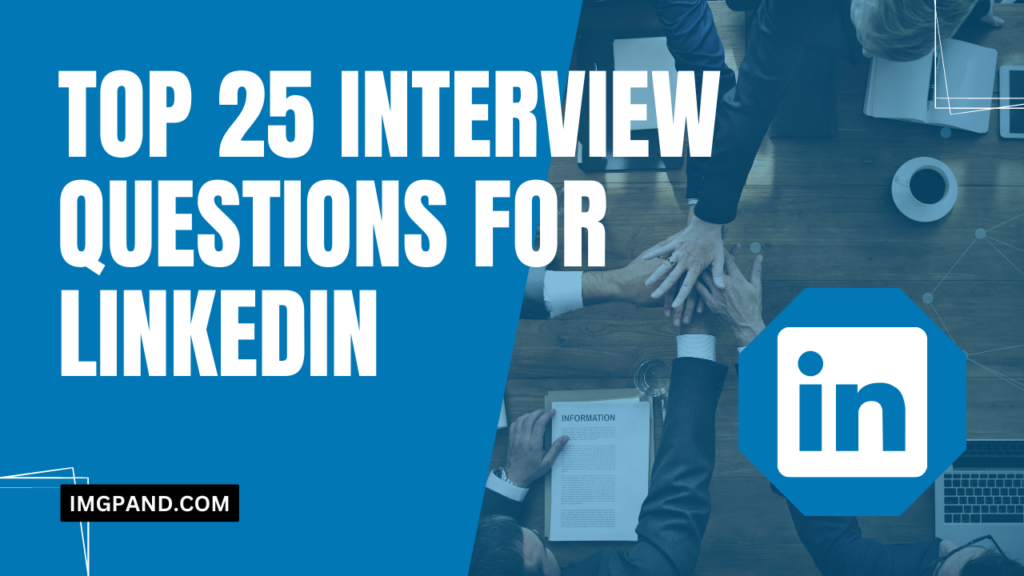Introduction
Preparing for job interviews on LinkedIn is crucial for success in today's competitive job market. To assist you in your interview preparation, we have curated a comprehensive list of the top 25 interview questions commonly asked on LinkedIn.
By familiarizing yourself with these questions and crafting thoughtful responses, you can enhance your chances of impressing potential employers and securing the job you desire. Whether you're a seasoned professional or just starting your career, this list will serve as a valuable resource to help you shine in your next LinkedIn interview.
Also Read This: GIFs Unleashed: Elevating Online Conversations with Visual Expression
General Interview Questions

General Interview Questions are commonly asked to gain an overall understanding of the candidate's background, motivations, work style, and problem-solving abilities. These questions typically include inquiries about the candidate's professional history, their interest in the position and company, their knowledge about the organization, their approach to teamwork, and their ability to handle challenges.
Crafting thoughtful and concise responses to these questions is important as they provide an opportunity to showcase relevant skills, align career goals with the position, and demonstrate enthusiasm for the company. Additionally, sharing specific examples of past experiences can help illustrate key competencies and highlight adaptability and resilience.
-
Tell us about yourself:
- Provide a concise overview of your professional background and key accomplishments.
- Highlight relevant experiences and skills that align with the job description.
-
Why are you interested in this position?
- Discuss your motivations, interests, and how the role aligns with your career goals.
- Emphasize the specific aspects of the job that attract you.
-
What do you know about our company?
- Demonstrate your research and knowledge about the company's mission, values, products/services, and recent news.
- Showcase your enthusiasm for the organization and explain why you believe you would be a good fit.
-
How would you describe your work style and approach to teamwork?
- Provide insights into your work style, highlighting your strengths in collaboration, communication, and problem-solving.
- Mention experiences where you successfully worked as part of a team.
-
Describe a challenging situation at work and how you handled it.
- Share a specific example where you faced a difficult situation, and explain the steps you took to address it and the outcome.
- Showcase your problem-solving abilities, adaptability, and resilience.
Also Read This: EyeEm Review Process: How Long Does It Take?
Technical and Job-Specific Questions:

Technical and job-specific questions are designed to assess your knowledge, skills, and expertise directly related to the position you are applying for. These questions aim to evaluate your proficiency in specific tools, software, or methodologies relevant to the job.
They also gauge your experience in handling tasks and projects in the field. Additionally, these questions may explore how you stay updated on industry trends and your ability to successfully complete projects. Providing concise and relevant responses that highlight your qualifications and accomplishments in these areas will demonstrate your suitability for the role
-
What relevant experience do you have in this field?
- Discuss your previous work experience, projects, or internships that demonstrate your skills and knowledge in the field.
- Highlight achievements and measurable outcomes.
-
How would you approach a specific task or project related to the job?
- Describe your methodology and thought process when tackling a task or project relevant to the position.
- Highlight your problem-solving abilities, creativity, and attention to detail.
-
What tools or software are you proficient in using?
- List the tools, software, or programming languages that are relevant to the job.
- Provide examples of how you have used these tools effectively in previous roles.
-
How do you stay updated on industry trends and developments?
- Discuss the methods you employ to stay informed about the latest industry trends, technologies, and best practices.
- Mention any relevant courses, certifications, or professional communities you engage with.
-
Can you provide an example of a successful project you completed?
- Share a detailed example of a project you completed, highlighting your role, the challenges faced, and the outcomes achieved.
- Emphasize your ability to deliver results and meet objectives.
Also Read This: List of Top 20 Accounts to Follow on Twitter
Behavioural and Situational Questions:
Behavioural and situational questions are designed to assess how you have behaved in specific situations in the past and how you would handle hypothetical scenarios in the future. These questions aim to evaluate your soft skills, problem-solving abilities, and your approach to challenges and conflicts.
They provide insight into your communication skills, adaptability, leadership potential, and ability to work well with others. It's important to answer these questions by providing specific examples from your past experiences and showcasing your abilities to handle various situations effectively. Demonstrating self-awareness, emotional intelligence, and a proactive attitude will help you excel in answering behavioural and situational questions during your LinkedIn interview.
-
Tell me about a time when you had to overcome a conflict with a colleague.
- Describe a specific conflict situation, how you addressed it, and the steps taken to resolve it.
- Highlight your communication, conflict resolution, and interpersonal skills.
-
How do you handle pressure and tight deadlines?
- Discuss your approach to managing stress and prioritizing tasks when facing tight deadlines or high-pressure situations.
- Mention specific strategies you employ to maintain productivity and deliver quality work.
-
Describe a time when you had to adapt to a significant change.
- Share an example of a situation where you faced a major change, such as a shift in responsibilities or organizational restructuring.
- Explain how you adapted to the change, the actions you took, and the positive outcomes.
-
How do you handle feedback and criticism?
- Explain your approach to receiving feedback, how you actively seek it, and how you incorporate it into your work.
- Emphasize your ability to learn from feedback, grow professionally, and continuously improve.
-
Give an example of a time when you demonstrated leadership skills.
- Share an example where you took charge, motivated a team, or led a project to success.
- Highlight your ability to inspire others, make sound decisions, and take responsibility.
"Below is a tweet about the behavioural and situational questions."
Episode 23 - Adjusting Your Mindset Podcast
More detail on the 7 steps to answer, behavioral and situational questions in an interview.
Link in Bio!#podcast #mindset #interview #star #method #apple #spotify #applepodcast #spotifypodcast #subscribe #fyp #fypシ #fypage… pic.twitter.com/iCdCZQ3LLA
— Ricky Paloy (@RickyPaloy) July 13, 2023
Also Read This: How to Get Freepik Premium Cookies: Is It Possible?
Questions to Assess Cultural Fit:
Questions to Assess Cultural Fit are designed to evaluate how well a candidate aligns with the values, beliefs, and work environment of the company. These questions delve into the candidate's attitudes, behaviours, and approach to work, aiming to determine if they would thrive within the organization's culture.
By asking about their alignment with company values, preferred work environment, commitment to continuous learning, perspective on diversity and inclusion, and adaptability to change, interviewers can gauge if the candidate's work style and mindset align with the company's cultural expectations. Assessing cultural fit helps ensure that the candidate will integrate well into the team and contribute positively to the organization's overall environment.
-
How do you align with our company culture and values?
- Explain how your personal values align with the company's culture.
- Share examples of how you have demonstrated similar values in previous roles or experiences.
-
Describe your preferred work environment and how you thrive in it.
- Discuss your ideal work environment, whether it's collaborative, autonomous, or a combination of both.
- Mention how you have thrived in similar work environments in the past.
-
How do you approach continuous learning and professional development?
- Explain how you prioritize your growth and development by seeking new knowledge, attending conferences, or taking courses.
- Emphasize your commitment to staying relevant and continuously improving.
-
What role does diversity and inclusion play in your work approach?
- Share your perspective on the importance of diversity and inclusion in the workplace.
- Discuss how you actively contribute to creating an inclusive and diverse work environment.
-
How do you handle and adapt to change in a fast-paced environment?
- Describe your ability to navigate and embrace change in a dynamic work setting.
- Share examples of situations where you successfully adapted to changes and maintained productivity.
Also Read This: How to Choose the Right Video Hosting Platform for Your Business
Questions to Assess Fit within the Team:

Questions to Assess Fit within the Team are aimed at evaluating how well a candidate would collaborate and work with others in a team environment. These questions assess the candidate's interpersonal skills, ability to communicate effectively, handle conflicts, delegate tasks, and contribute to a positive team culture.
The purpose is to gauge whether the candidate possesses the necessary qualities and behaviours to work well with diverse team members, navigate challenges, and contribute to the team's overall success. Assessing fit within the team helps ensure that the candidate will be able to collaborate seamlessly, build strong relationships, and effectively contribute to the team dynamics and goals.
-
How do you collaborate with cross-functional teams or departments?
- Describe your experience working with teams from different departments or backgrounds.
- Highlight your communication, adaptability, and teamwork skills.
-
How do you handle working with difficult or challenging team members?
- Share your approach to collaborating with challenging personalities and maintaining a positive work environment.
- Provide examples of situations where you successfully navigated such challenges.
-
Describe a time when you had to delegate tasks and manage a team.
- Explain a situation where you had to delegate responsibilities, manage a team, and ensure successful project completion.
- Highlight your leadership, organizational, and communication skills.
-
How do you contribute to a positive team culture?
- Discuss your role in fostering a supportive and collaborative team environment.
- Share examples of how you promote open communication, respect, and teamwork.
-
How do you handle conflicts or disagreements within a team?
- Explain your approach to resolving conflicts and finding common ground within a team.
- Share examples of situations where you effectively managed conflicts and maintained positive working relationships.
"Below is a video discussing the top interview questions."
Also Read This: Free Downloads from Depositphotos: A Quick Guide
FAQs (Frequently Asked Questions)
Q1: How can I prepare for interviews on LinkedIn?
A: To prepare for interviews on LinkedIn, it is important to research the company and the role you are applying for. Review common interview questions and practice your responses. Consider conducting mock interviews with a friend or mentor to gain confidence. Additionally, showcase your skills and experiences on your LinkedIn profile to make a strong impression.
Q2: How should I answer the question, "Tell us about yourself"?
A: When answering the "Tell us about yourself" question, focus on providing a brief overview of your professional background, key accomplishments, and relevant experiences. Tailor your response to highlight the skills and qualities that make you a strong fit for the position. It is a good opportunity to showcase your strengths and demonstrate how your past experiences align with the job requirements.
Q3: How do I handle challenging interview questions?
A: Challenging interview questions can be intimidating, but it's essential to stay calm and composed. Take a moment to gather your thoughts before answering. If you are unsure about a question, don't hesitate to ask for clarification. Be honest, provide specific examples where possible, and focus on showcasing your problem-solving abilities, adaptability, and resilience.
Q4: What is the significance of cultural fit in the interview process?
A: Cultural fit is important in the interview process because it ensures that candidates not only possess the required skills and qualifications but also align with the company's values, work environment, and team dynamics. Assessing cultural fit helps determine if a candidate will thrive within the organization, contribute positively to the team, and adapt well to the company's culture.
Q5: How can I demonstrate my leadership skills in an interview?
A: To demonstrate your leadership skills in an interview, share specific examples where you took charge, motivated a team, or led a project to success. Highlight your ability to make sound decisions, inspire others, and take responsibility for outcomes. Discuss your approach to problem-solving, communication, and decision-making, showcasing how you effectively lead and influence others towards achieving common goals.
Conclusion
Being well-prepared for interviews on LinkedIn is key to standing out and securing your desired job. By familiarizing yourself with common interview questions, practising your responses, and showcasing your skills and experiences, you can increase your chances of success.
Remember to tailor your answers to each specific interview, emphasizing your alignment with company culture, ability to work well within a team, and adaptability. Cultivate confidence, maintain a positive attitude, and be authentic in your responses. With thorough preparation and a strong understanding of your own strengths, you can approach LinkedIn interviews with confidence and increase your chances of landing your dream job.
